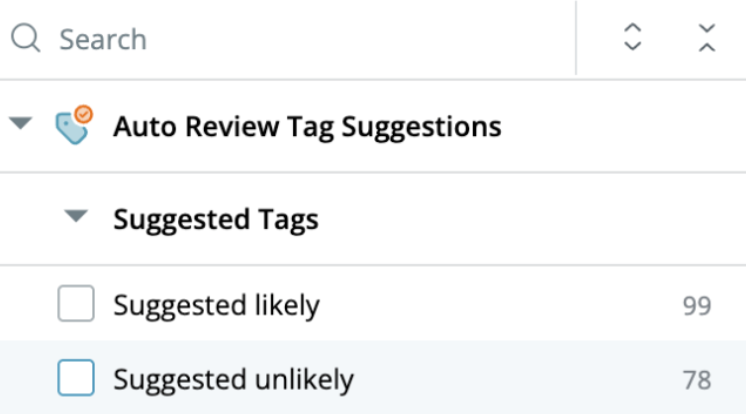⚡️ 1-Minute DISCO Download
With increasing enforcement of President Biden’s July 2021 executive order (EO), companies should be prepared for not just settlements, but litigation — and follow smart strategies to be able to find evidence faster.
As a reminder, the EO laid out 72 initiatives to curb the monopolization of industries and strengthen antitrust enforcement. With a “whole-of-government” antitrust policy, the EO committed the federal government to aggressive enforcement of antitrust laws, including a call for the leading antitrust agencies – the U.S. Department of Justice (DOJ) and the Federal Trade Commission (FTC) – “to enforce the antitrust laws vigorously” and a recognition that the “law allows them to challenge prior bad mergers that past Administrations did not previously challenge.”
In conjunction with nominating and confirming prominent Big Tech critic Lina Khan as the chairwoman of the FTC, the White House spent last summer signaling a true effort to crack down on anti-competitive practices.
In late 2021, the DOJ brought a lawsuit to stop Penguin Random House’s $2.175 billion acquisition of Simon & Schuster, which would have combined the world’s largest and fourth-largest book publishers. In mid-February 2022, Lockheed Martin scrapped its plans for a $4.4 billion acquisition of Aerojet Rocketdyne after the FTC sued to block the transaction. With the successful efforts by the FTC to stop HCA Healthcare from acquiring five hospitals from Steward Health Care Systems this summer plus a September 2022 trial date for the DOJ challenge to the American Airlines/JetBlue alliance, it appears that the Biden administration intends to follow through on their initiatives.
Antitrust investigations generally used to result in government-led merger settlements to address illegal deals, where companies expected two things: 1) agency staff to spend months working to "fix" the issues, and 2) the deal to eventually close. But Khan and her counterpart at the DOJ, Assistant Attorney General in charge of the antitrust division Jonathan Kanter, have a new message for corporate America: no more negotiation; litigation is coming.
In a recent interview with Axios, Khan said that the agency hasn't banned the approach where companies try to obtain a consent decree in order to clear FTC scrutiny. But, she added, "We're going to be focusing our resources on litigating, rather than on settling." Kanter has expressed a similar sentiment. In remarks delivered on January 18, 2022, and January 24, 2022, Kanter noted that the antitrust division of the DOJ is in lock-step with Khan and the FTC. In particular, Kanter stated:
Settlements do not move the law forward. We need new published opinions from courts that apply the law in modern markets in order to provide clarity to businesses. This requires litigation that sets out the boundaries of the law as applied to current markets, and we need to be willing to take risks and ask the courts to reconsider the application of old precedents to those markets.
Khan told Axios that the FTC will be especially skeptical when it comes to transactions involving areas where there is growing adoption of emerging technologies, such as smart home technologies and virtual reality.
The impact of the EO and the change in philosophy at these two critical enforcement agencies will not be truly understood for months or even years, but it is clear that there will be an increase in the breadth and scope of their investigations of mergers, acquisitions, and alleged anti-competitive practices — and the government will likely be more aggressive in bringing enforcement actions. This increase in government attention may also yield an increase in follow-on private litigation.
Whether or not Khan and Kanter’s statements actually manifest in fewer consent decrees and more litigation, it’s important for companies and legal teams to be prepared to prevent costly, lengthy business disruptions. There are five things your team can do now to prepare for potential regulatory action:
(1) Identify where relevant data is stored and understand the retention practices surrounding it so you can assess current and potential risks and your opportunities to mitigate them defensibly.
(2) Create a repeatable process or playbook for investigations with buy-in from all impacted divisions of the company so everyone knows who is responsible and what is expected from them if an investigation materializes.
(3) Vet and contract with legal technology vendors who can support your organization’s workflow, workload, and file types before an investigation begins. Look for solutions that automate manual work and enable self-service for legal teams.
(4) In preparation for interactions with federal regulators, document your antitrust compliance program. Include the design and implementation of your program; how your organization monitors and audits employee conduct; and any supporting material that illustrates a corporate culture of compliance (such as incentives, disciplinary actions, and evidence of remediation).
(5) Evaluate your existing non-compete agreements to determine whether to revise them or prepare arguments regarding their reasonableness in light of likely upcoming regulations to curtail the unfair use of noncompete clauses and other clauses or agreements that may unfairly limit worker mobility.
These five tactics can help you prepare for on-coming litigation or regulatory investigations at the macro level. However, not being prepared with the right technology and plan of attack should those investigations or litigation arise can hurt your ability to respond. Being strategic in leveraging next-gen legal technology to streamline regulatory investigations means your team will be able to respond faster and implement agreed-upon playbooks with ease.
So how can legal technology accelerate the speed to evidence in support of investigations?
Eliminate delays: Implement a process for initiating legal holds, identifying relevant data, and pulling it for review. This will not only help minimize relevant custodian’s business interruptions, it will also ensure team members know what to do and act quickly when an investigation begins.
Being proactive and having a plan in place is fundamental to eliminating delays. For example, if your organization has data sources with short retention policies (like aging out personal data after 90 days for example), it's particularly important to be cognizant of them so that you can place them on hold if needed. Be sure to consider employees leaving your organization and what happens to their data when developing your policies as well.
Consider investing in legal technology that helps minimize the delays caused by locating and working with key data. By using DISCO Hold, for example, legal teams can automate the manual work required to identify and notify custodians, track acknowledgments, preserve data in place, and defensibly comply with preservation requirements. A self-service legal hold platform like DISCO Hold allows you to draft and send preservation letters and questionnaires from customizable templates, automate reminders to those impacted by a hold notice, integrate with HR software to ensure custodian information is up-to-date, and provide comprehensive audit trails with reporting that ensures defensible work product. At the same time, a platform like DISCO Ediscovery minimizes the time and steps required to transfer data from corporate systems into a reviewable format, and enables both in-house teams and outside counsel to gain a comprehensive understanding of their relevant data faster.
Let AI do the heavy lifting: With 2.5 quintillion bytes of data created every day, reviewing every collected document is not only cost-prohibitive but also far too time-consuming and likely to result in missed deadlines based on the sheer volume for review. Furthermore, a growing body of evidence suggests that keywords are not an effective way to find documents. In fact, one study shows 78% of relevant documents were “left on the table” when Boolean searches were used alone. Together these challenges indicate that In-house teams need an accurate and efficient way to review documents and respond to government investigations that balances speed and cost.
When facing large data sets, employing the right AI and AI workflows, like DISCO Ediscovery and DISCO AI, accelerate your review with defensible workflows so you don’t have to review every document. By prioritizing documents for review, corporations can reduce the number of documents requiring review, and accurately find relevant documents faster. Using DISCO AI, outside counsel and corporate legal teams alike have seen review populations reduced by 50%.
Ensure collaboration: Whether working solely with in-house teams or in partnership with outside counsel, it is critical that all team members are kept in the loop and coordinate across the life of the action. By having the ability to track progress, share key documents, and collaboratively review and analyze employee and third-party interviews legal teams will be prepared for both government agencies and follow-on litigation.
Investing in tools that promote collaboration allows outside counsel, in-house legal teams, and other stakeholders to quickly and securely work together to create a strong strategy. DISCO’s suite of products provides a consumer-grade software experience designed to support the way legal professionals work. Covering the entire litigation lifecycle from initial preservation to trial preparation, we equip organizations with the ability to share documents, notes, comments, and testimony within a single platform. This not only helps build stronger cases, it helps control costs, reduce manual tasks, and capture the time-saving and efficiency benefits during economically important cases such as a merger or acquisition.
By doing the legwork now, your legal team will be able to jump in without delay if and when a regulatory investigation comes your way. Interested in learning more about how DISCO’s suite of litigation software can reduce the cost and delays of finding evidence in response to regulatory actions? Contact us today for a demo.










